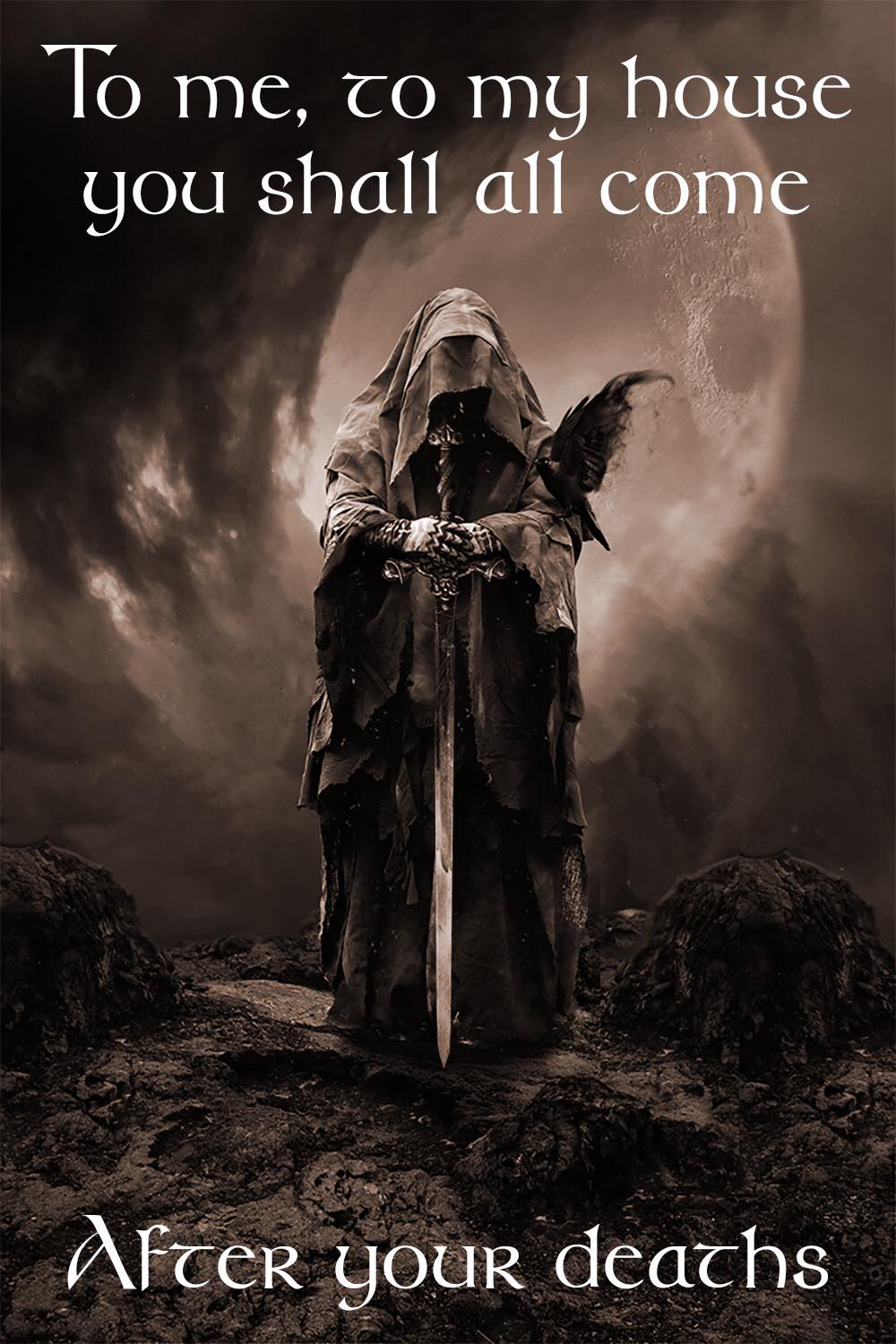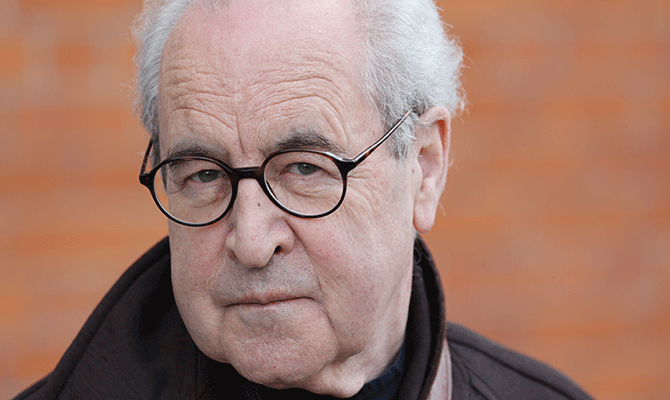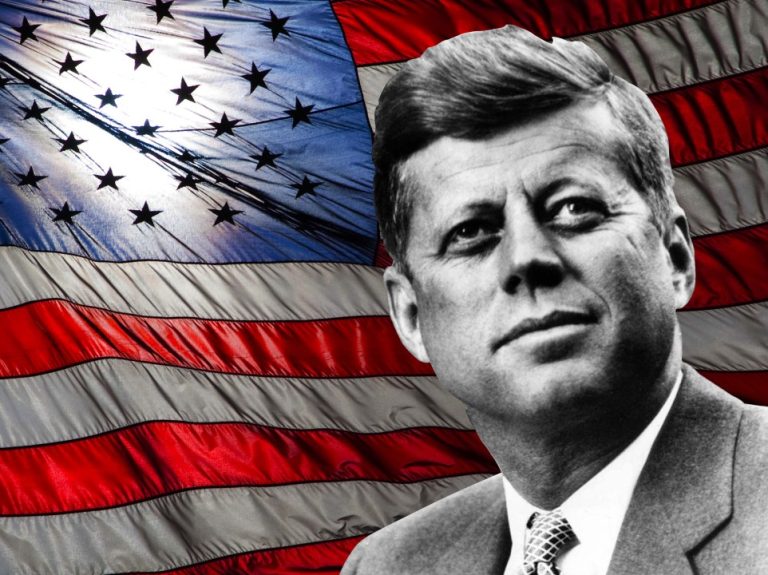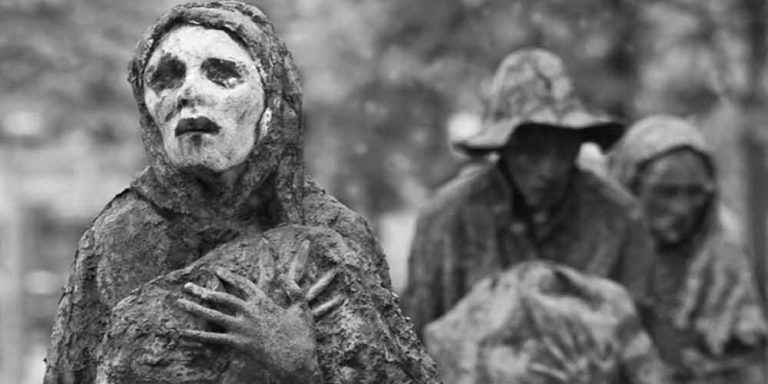

In the tapestry of Irish mythology, few figures are as evocative—or as misunderstood—as Donn, “the Dark One.” At once ominous and ancestral, Donn is the phantom lord who waits at the edge of the world, receiving the souls of the departed into his hall, Tech Duinn. Though his name literally means “brown” (modern Irish donn), the shades of Donn are far darker: he is the underworld guide, the shadowy rider, and, for some, the very forebear of the Irish people.
Who Is Donn?
-
Name & Meaning
Donn derives from Proto-Celtic Dhuosnos, meaning “the Dark One.” Over time, his name simply came to denote the color brown, but in mythic terms it echoes the deep earth and the unknown beyond the setting sun. -
Role in Myth
As both an ancestor of the Gaels and a god of the dead, Donn occupies a unique nexus between lineage and afterlife. Where most deities rule storms or fertility, Donn rules passage—guiding souls from life into the great unknown.
Tech Duinn: The House of the Dark One
Legend places Donn’s dwelling at Tech Duinn (“House of Donn”), said to lie off Ireland’s western cliffs, where the sun slips beneath the waves. Some key points:
-
Migration of Souls
A 9th-century poem preserves Donn’s dying wish:“To me, to my house, you shall all come after your deaths.”
This underscores the belief that all the Gaels—Donn’s descendants—would gather at Tech Duinn upon dying. -
Bull Rock & the Otherworld
Tech Duinn is commonly identified with Bull Rock, a small islet near the Beara Peninsula that, with its natural tunnel, resembles a portal. Folk belief held that souls departed westward over the sea, following the setting sun to meet Donn. -
Staging Post or Final Abode?
Some tales suggest Tech Duinn was more a gathering place—souls resting here before moving on to otherworld realms or preparing for reincarnation—than an eternal grave.
Donn in Early Irish Literature
Several medieval texts illuminate Donn’s stature:
-
Acallam na Senórach (“Colloquy of the Ancients”):
Ann Dooley and Harry Roe note that “to go to the House of Donn in Irish tradition means to die,” equating Donn’s realm with the very concept of death. -
Lebor Gabála Érenn (“Book of the Taking of Ireland”):
Christian redactors recast Donn as Éber Donn, a Milesian prince. Spurning the land goddess Ériu during the Milesian invasion, he drowns and is buried on an offshore island—thus founding Tech Duinn in legend. -
Metrical Dindshenchas:
A druidic storm founders Donn’s ship; Amairgen decrees his burial on a high rock, establishing Tech Duinn. Sinful souls linger there to bless Donn, while the righteous glimpse it from afar. -
Togail Bruidne Dá Derga (“Destruction of Dá Derga’s Hostel”):
When King Conaire Mór meets red-robed, otherworld riders on red horses, they tell him, “We ride the horses of Donn … although we are alive, we are dead,” branding Donn “king of the dead.”
Folklore & the Phantom Horseman
Long after medieval scribes put pen to vellum, Donn survived in oral lore:
-
Phantom Rider
In parts of Limerick and Clare, people spoke of a pale‐cloaked horseman on a white horse, ghostly thunder following in his wake. When Donn rode, they said, rain or storm would follow. -
Local Variants
-
Donn Fírinne of Knockfeerina: associated with weather and rainmaking.
-
Donn na Duimhche (“Donn of the Dunes”): a night rider haunting the west Clare coast.
-
-
Transformation to “Otherworld Lord”
Over time, the name Donn became a generic title for chthonic rulers, a testament to his lasting impact on the Irish imagination.
Donn’s Divine Family Tree
While Donn himself had no human offspring, in myth he is linked to the greatest figures:
-
Possible Son of the Dagda?
Some tales present Donn as the Dagda’s foster‐son or aspect, suggesting his underworld role branched directly from Ireland’s chief god. -
Foster-Father of Diarmuid Ua Duibhne
The great Fianna hero Diarmuid spent part of his youth in Donn’s care, tying Gaelic hero-saga to the realm of the dead.
Why Donn Matters Today
-
Ancestor & Afterlife
Donn embodies the belief that our forebears await us beyond death, offering an Irish counterpoint to Hades or Dis Pater—an underworld shaped by Atlantic horizons rather than Mediterranean depths. -
Cultural Touchstone
From modern poetry to place‐names, echoes of Donn resonate: the “brown” earth, the westward sea, the inevitable gathering of souls. -
Gateway to Celtic Astronomy
Just as Irish stargazers peered skyward for navigation and prophecy, they also looked west to Bull Rock’s portal. For a related journey through Irish contributions to the stars, see “Who Invented the Telescope?” https://secretireland.ie/who-invented-the-telescope-a-journey-through-the-stars-and-irelands-place-among-them/.
Fun Facts About Donn
-
House Name: “Tech Duinn” literally means house of the dark one.
-
Tale of Conaire Mór: Those ominous red riders were Donn’s spectral heralds.
-
Roman Connection: Julius Caesar notes the Gauls claimed descent from a god like Dis Pater—echoes of Donn’s ancestral role.
-
Modern Wordplay: In Irish today, donn simply means “brown,” a humble echo of a once‐mighty deity.
Key Takeaways
-
Donn is both ancestor of the Gaels and lord of the dead in Irish myth.
-
His hall, Tech Duinn, sits at Ireland’s western edge, collecting souls after death.
-
Medieval scribes wove him into genealogies (Éber Donn) and saga, while folklore cast him as the phantom horseman.
-
Though his worship faded, Donn’s shadow lingers—in place‐names, in poetry, and in our collective imagination.
From Liscannor to Drogheda, from druidic poem to coastal legend, Donn weaves together ancestry, afterlife, and Irish identity. Next time you watch the sun sink into the Atlantic, remember: those golden rays mark the path to Tech Duinn, where “the Dark One” awaits.
“To me, to my house, you shall all come after your deaths.” —Donn’s Dying Wish (9th-c. poem)



